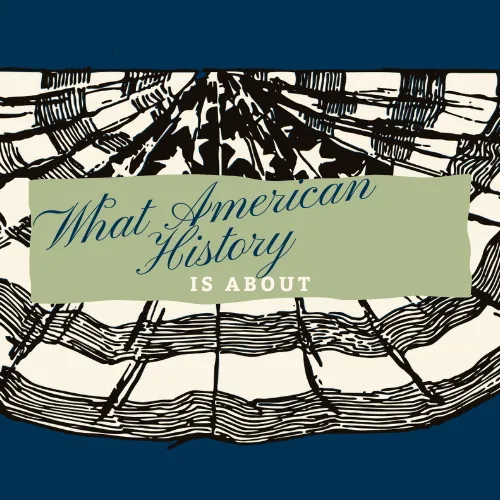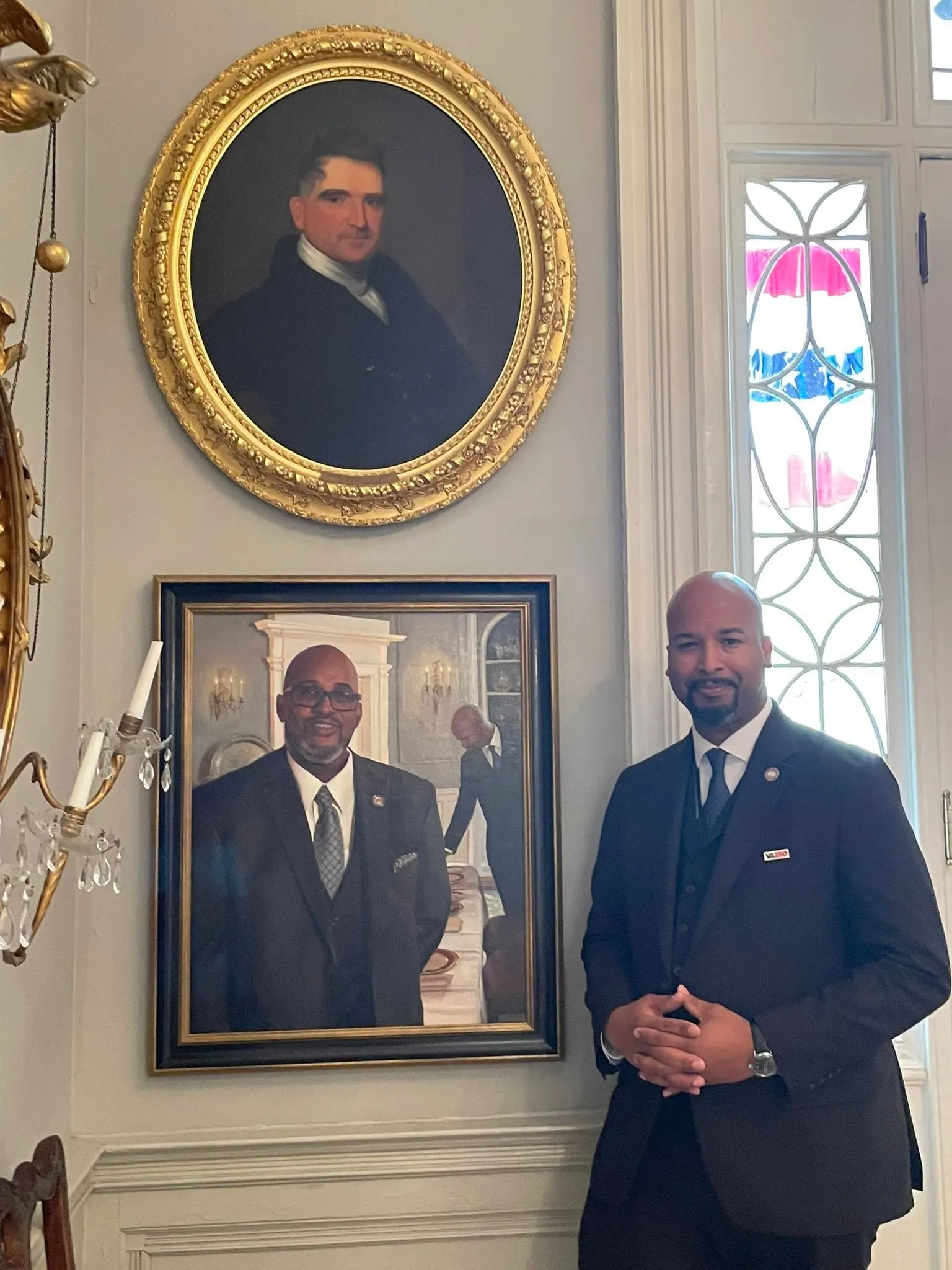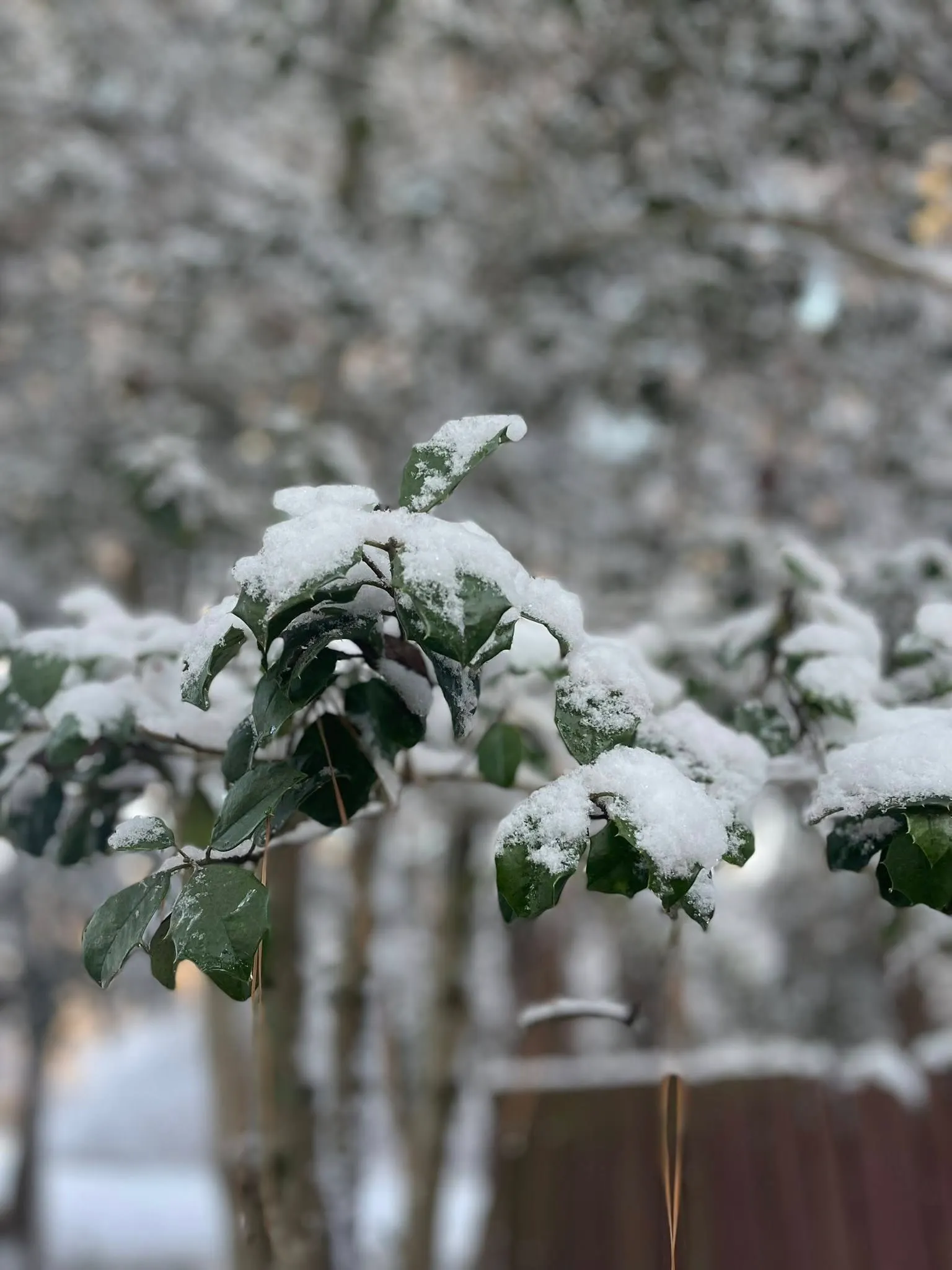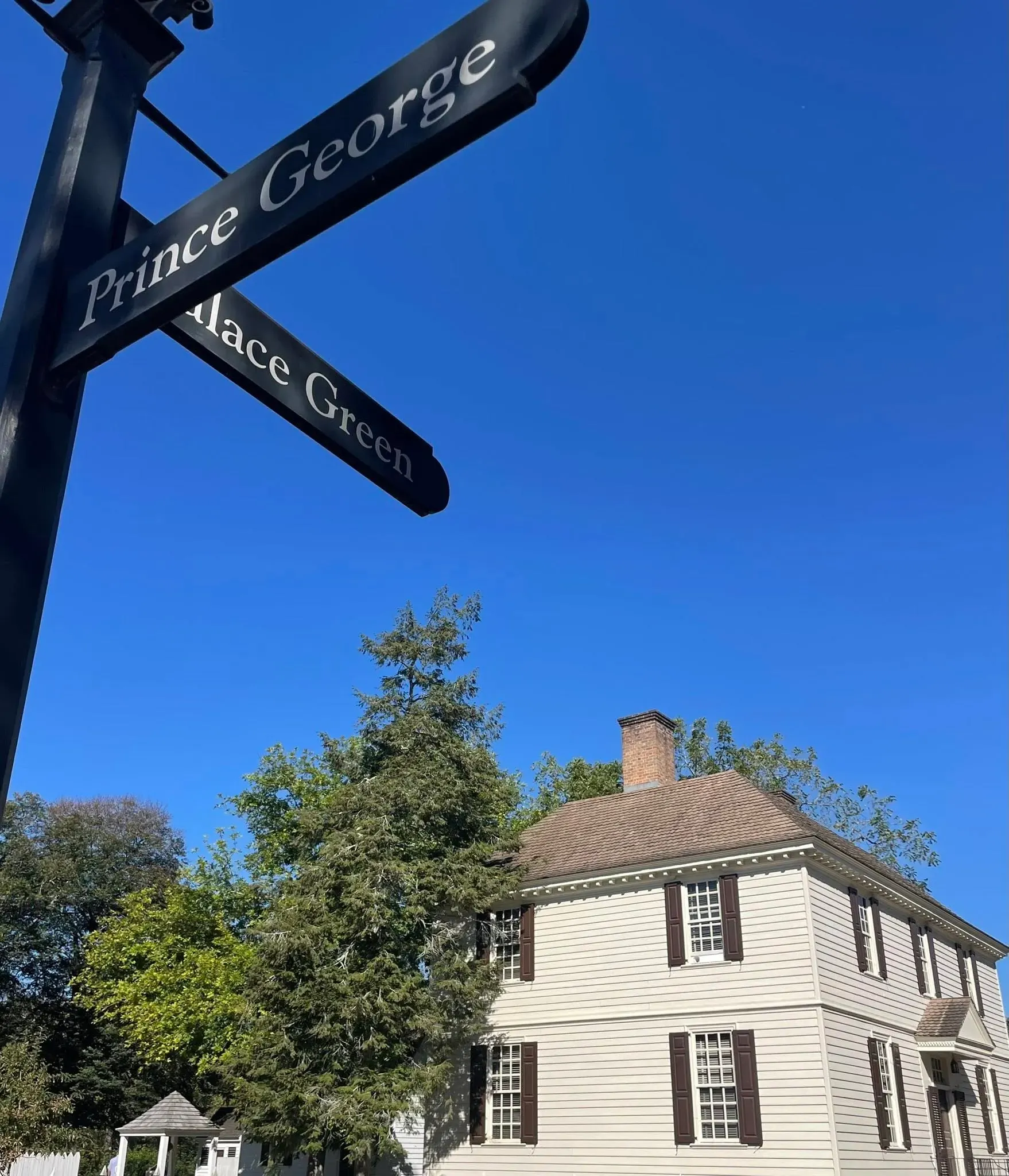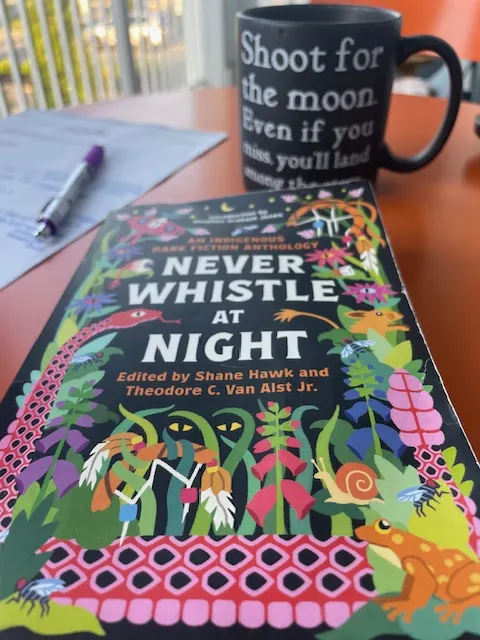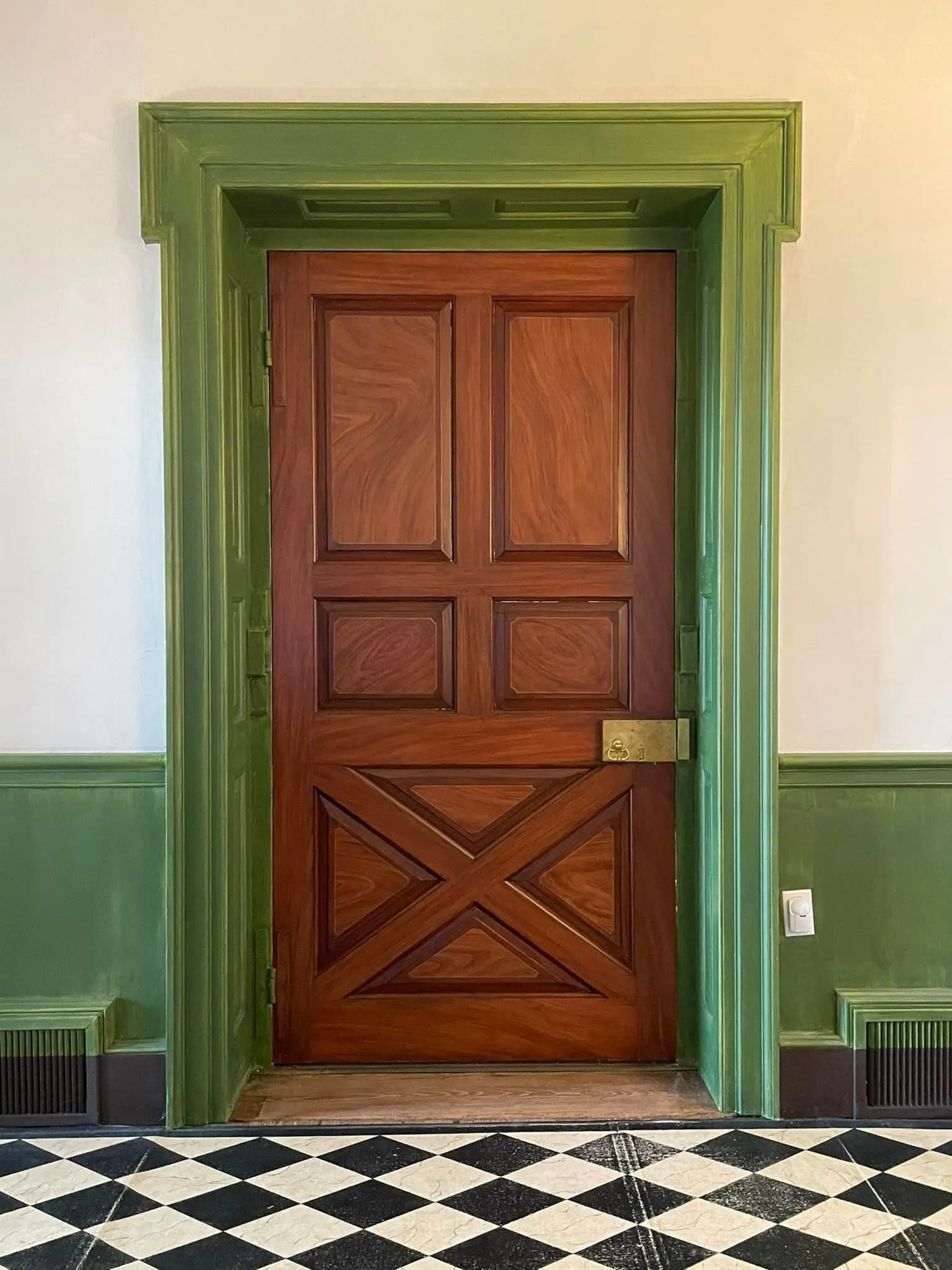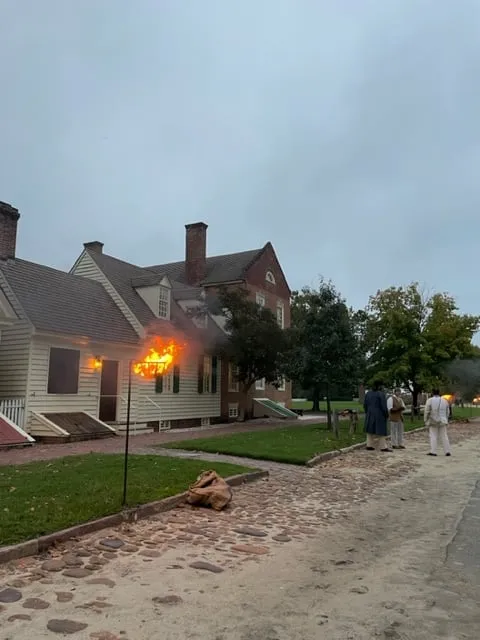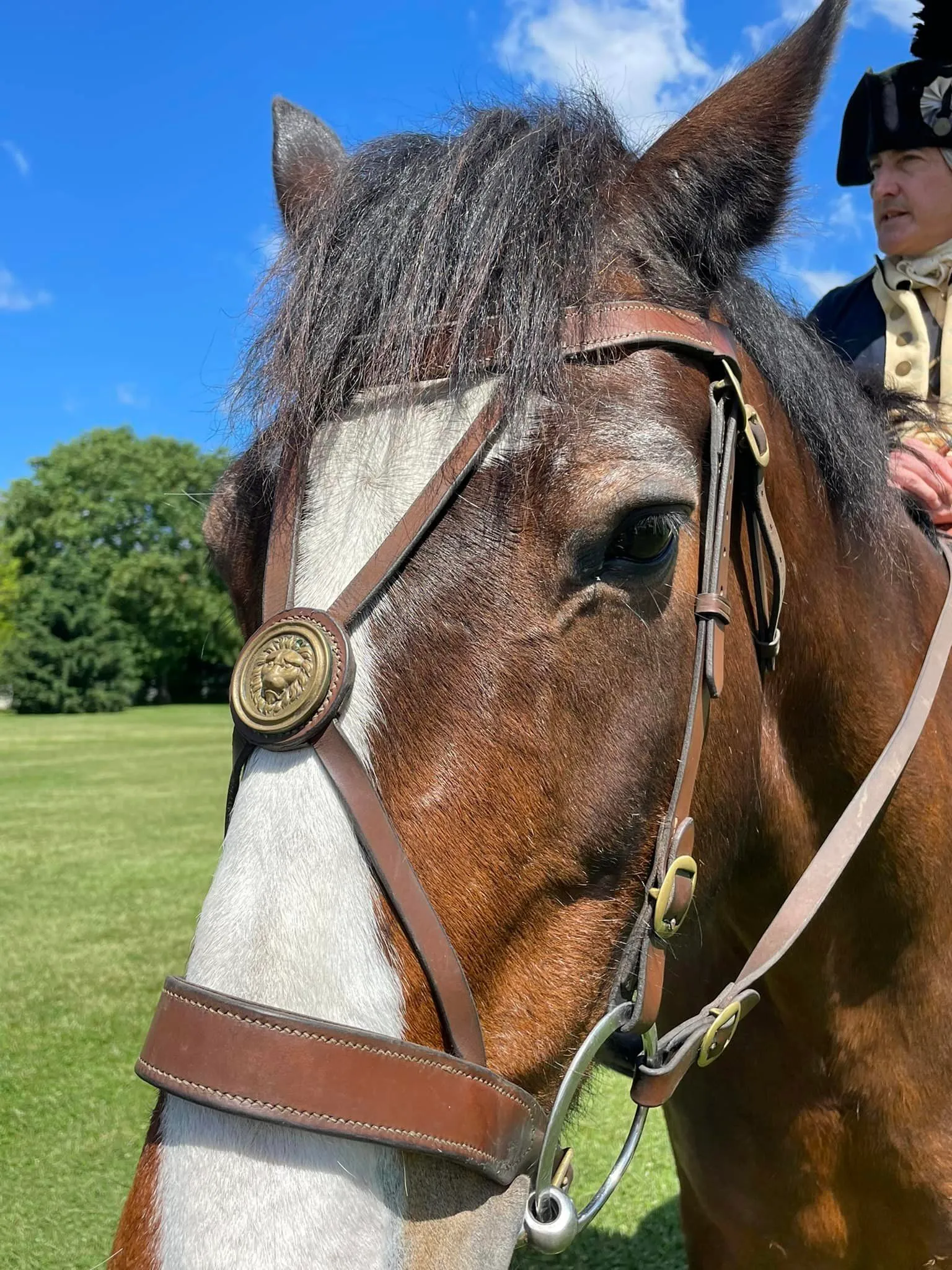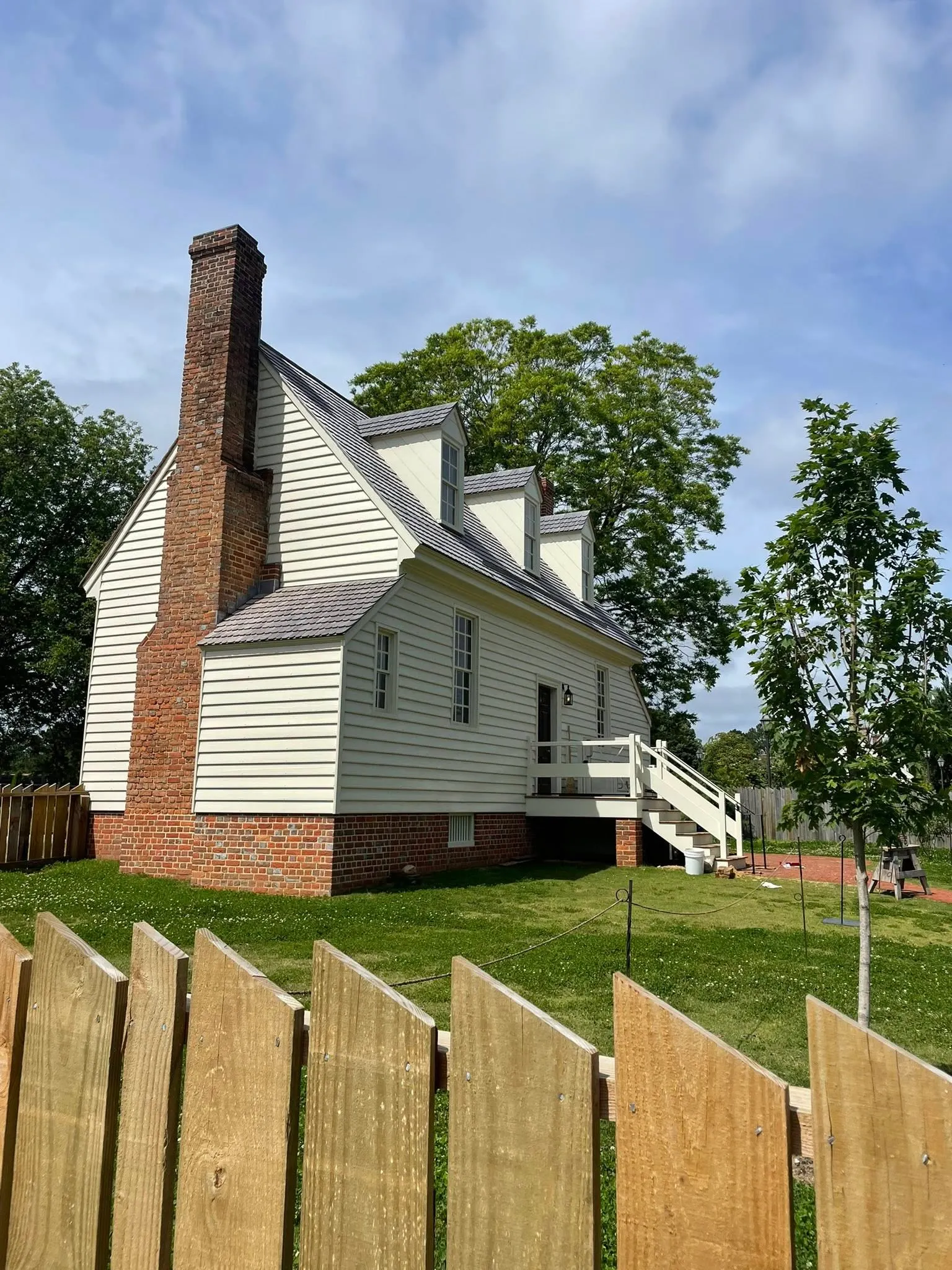A Review of "Witness To Revolution" by Michael Cecere and Jennifer Cecere: Insights from a Blogger
Historical fiction raises so many questions for true history buffs.
Books about history can be a little dry- there, I said it! So sometimes, tossing in some historical fiction is refreshing. But then people like me sometimes drift off into wondering exactly how much fact is woven into the fiction.
I'm writing about Michael and Jennifer Cecere's Witness to the Revolution because my mind didn't wander. It's clear a LOT of fact is woven in based on all the things I've learned since moving down the street from the historic area of Colonial Williamsburg (CW).
Necessary disclaimer: As a blogger, I use affiliate links sometimes! I may receive commission from purchases I share; it does not change your price but sometimes you might get a discount.
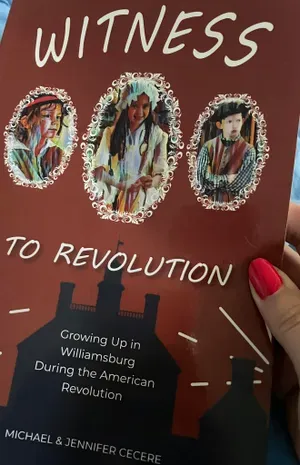
Mike and Jennifer Cecere's book
Who should read Witness to the Revolution?
When Mike told us about his historical fiction masterpiece (my word!) he co-wrote with his daughter Jennifer, he called it a "children's book" for ages 9 and up.
At over 50, I'm solidly in the "and up" - and honestly, it's age-9 appropriate but much more than a children's novel; it's one I recommend for anyone interested in American history.
Highly recommend in fact. And that's not just because I live so close to CW, the book's setting, but because it is everything I love about historical fiction.
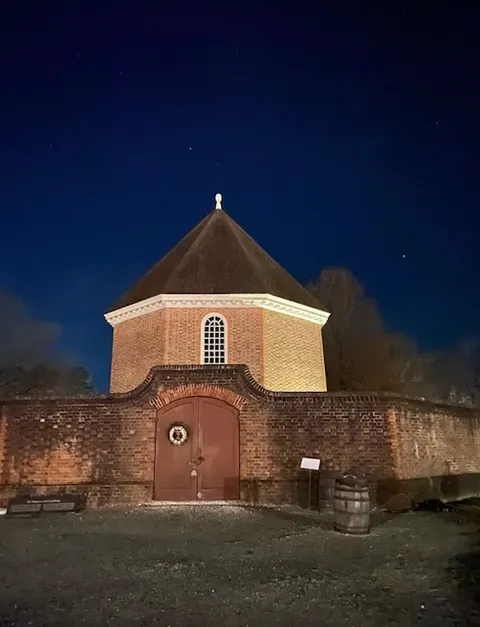
The powder magazine in CW, referenced in the book.
Fact or fiction?
Yes, this is a book of fiction, but Mike's expertise is glaringly obvious. Not only has he authored multiple non-fiction books about 18th century America, he is a retired history teacher who volunteers in CW.
And truly- he immerses himself in all the educational opportunity that comes with living near what's currently the largest living history museum in the world.
Collaborating with Jennifer, who he has credited in conversation with me, brought the history into context with easy flow and characters that are relatable.
This book of fiction includes:
- actual events
- characters who lived here in Williamsburg or visited
- buildings that you can visit/see/tour as part of the museum today
....and more.
Cecere's understanding of all of the above runs deep. He's had personal conversations with actor historians who portray some of the people in the book.
Example: While the dinner discussion in the book between Colonel George Washington and Bryan Fairfax did not specifically happen, it's based on primary-sourced material and conversations Mike has had with Daniel Cross, who portrayed the young Colonel in CW.
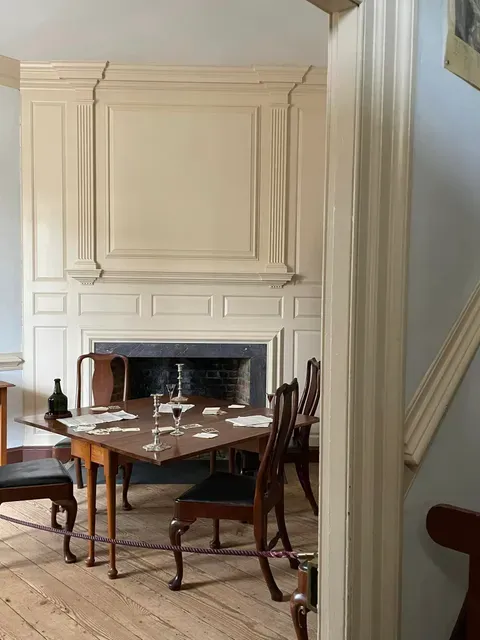
Many private dinners took place in a club room like this at the Raleigh Tavern reconstruction.
Using the taverns as the foundational location for the book: pure genius.
Taverns were a place of discussion. They're where news was passed on. And, importantly, the Apollo Room of the Raleigh Tavern was where the dissolved House of Burgesses went on to plan the fight for independence.
Having the book centered around the children whose parents run two popular taverns during the eve of (and into) the Revolutionary War offers the authors a platform from which they fully draw the reader into the story.
The broader scope of daily life and who lived here is represented well in many ways. One such way: having one of the children attend the College of William and Mary's grammar school. Another: including interactions with characters like George Wythe (Jefferson's real-life mentor), Jefferson himself, and the children of Lord Dunmore (Virginia's last Royal Governor).
Tough decisions, conflicting emotions, and the reality of heading into a war for independence is addressed from multiple points of view and with brilliance. Each child's personality and specific interactions drive their interpretation of what is happening around them.
The result is comprehensive and compassionate, including a scene demonstrating the difficult decision of an enslaved man. He was close to one family in every sense, but is offered hope for freedom if he decides to run away and join the British forces.
Update May 16, 2024:
Yesterday we had the pleasure of attending a tour of Colonial Williamsburg- the Witness to the Revolution version!
Mike Cecere took a group of us on a walking tour to see the Anderson and Southall taverns, as well other key locations in the book.
Interested? It's such a unique opportunity. Who gets to walk through the locations in a book, with the author? Get a hold of me and I'll connect you! (hint: subscribe to this blog and connect via email or message me using Instagram)
Buy the book. And Michael Cecere's non-fiction books too!
If you love American history, this is a must-have for your historical fiction collection. If you want deeper dives, check out Mike's non-fiction books.
Buy Witness to the Revolution by clicking here.
MY UPDATE: Witness to War (the 2nd in this series) is out, as you may know. It picks up with the war in progress and slightly older James, John, and Rebecca as they navigate their roles in and around the Revolution. I loved it. Same characters, evolving perspectives, more history. Click here to purchase it.
Shop all of Mike Cecere's books on Amazon by clicking here.
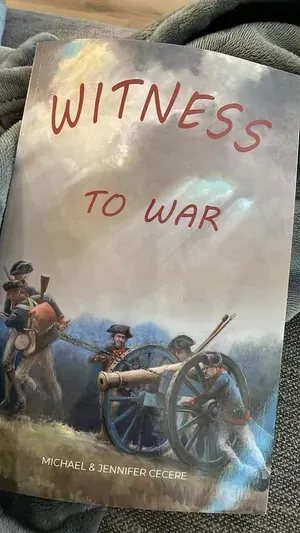
Witness to War, my copy!
Side note: If you visit CW, you can grab several of them in the historic area's shops or at the Visitor's Center and Mike may even be hanging around to sign your copies!)

The Invasion of Virginia on shelf at CW's Prentis Store
Closing words from history (because even though this is a book review post, I'm inspired to share some!)
In 1777, Washington wrote to Bryan Fairfax - I've pulled an excerpt sharing his sentiment I about their relationship. It's important to note that letters with Fairfax continue throughout Washington's life, well after the war.
To read the letter in full on Founders Archives, with citations, click here.
From George Washington to Bryan Fairfax, 25 September 1777
To Bryan Fairfax
Camp, near Pottsgrove [Pa.] Septr 25th 1777.
(content precedes excerpt)
In my Letter of yesterday I assurd you, and assurd you with truth, that the difference in our political Sentiments had made no change in my friendship for you—I esteem, and revere, every Man who acts from principle as I am perswaded you do; and shall ever contribute my aid to facilitate any Inclination you may wish to endulge, as I am satisfied that that honr which I have ever found you scrupulously observant of, will never be departed from. I shall add no more, because in the first place, I have very little leizure, & in the next, because I conceive it unnecessary to multiply words to proove that with sincere regard I am Dr Sir Yr Most Obedt & Affe
Go: Washington
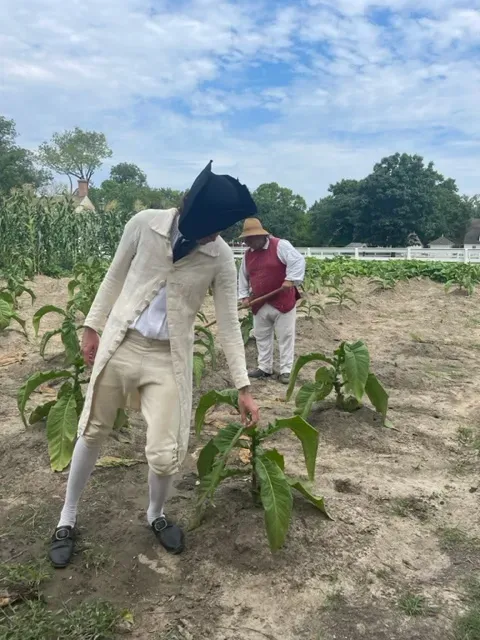
Daniel Cross portraying Washington, Mike Cecere to the rear -at CW's Ewing Field
Are you enjoying the history I'm sharing on this blog? Use my online tip jar and buy me a coffee:

There is a huge practical disclaimer to the content on this blog, which is my way of sharing my excitement and basically journaling online.
1) I am not a historian nor an expert. I will let you know I’m relaying the information as I understand and interpret it. The employees of Colonial Williamsburg base their presentations, work, and responses on historical documents and mainly primary sources.
2) I will update for accuracy as history is constant learning. If you have a question about accuracy, please ask me! I will get the answer from the best source I can find.
3) Photo credit to me, Daphne Reznik, for all photos in this post, unless otherwise credited! All photos are personal photos taken in public access locations or with specific permission.
